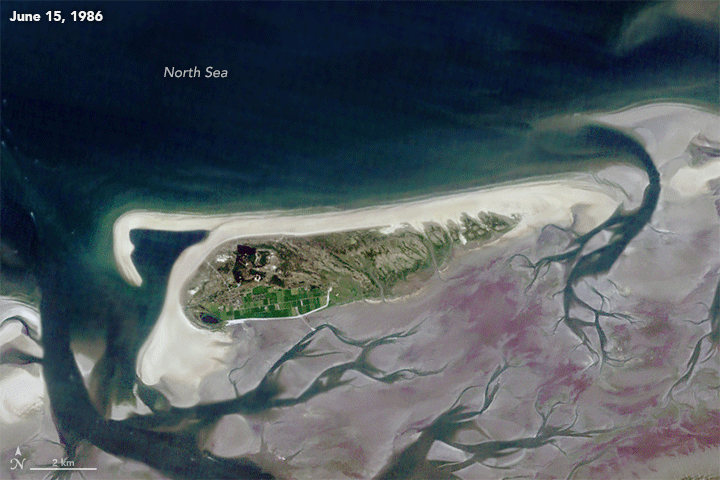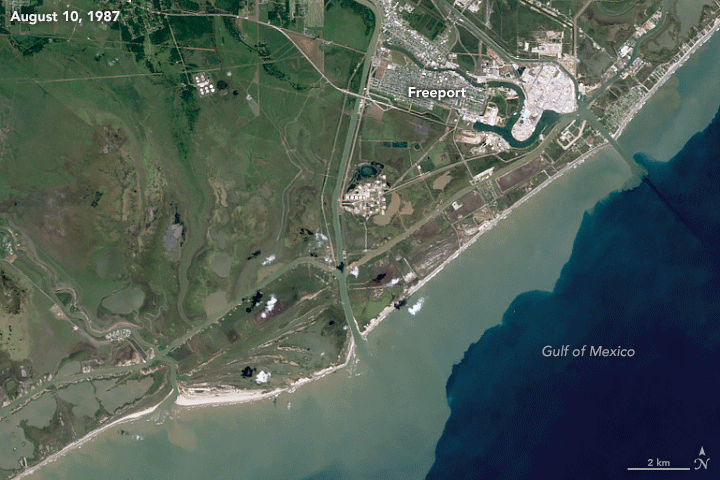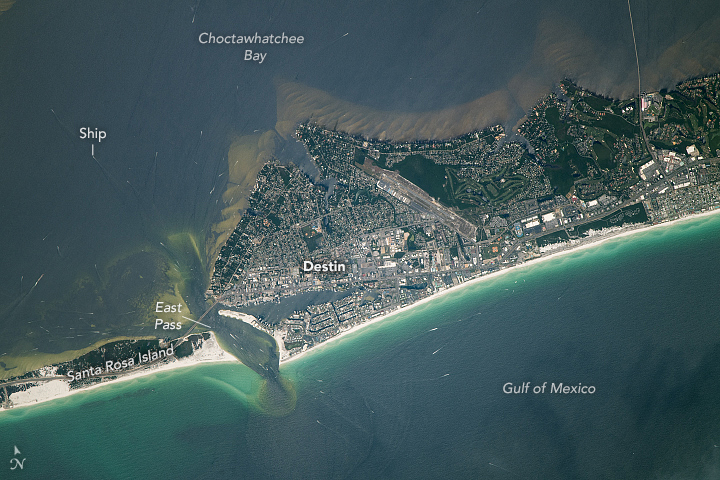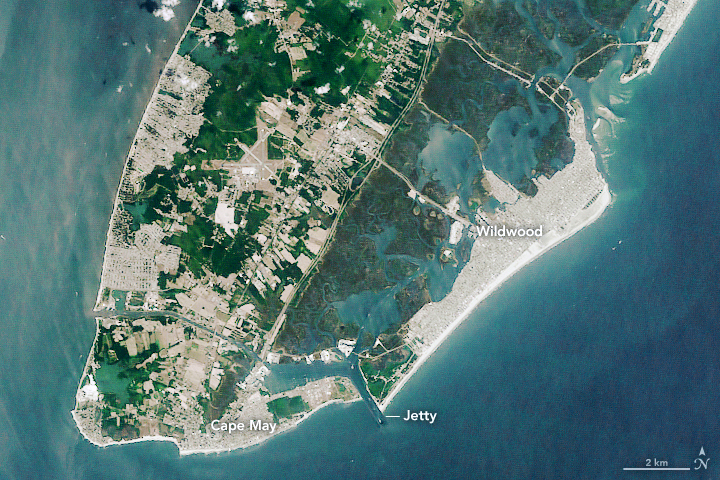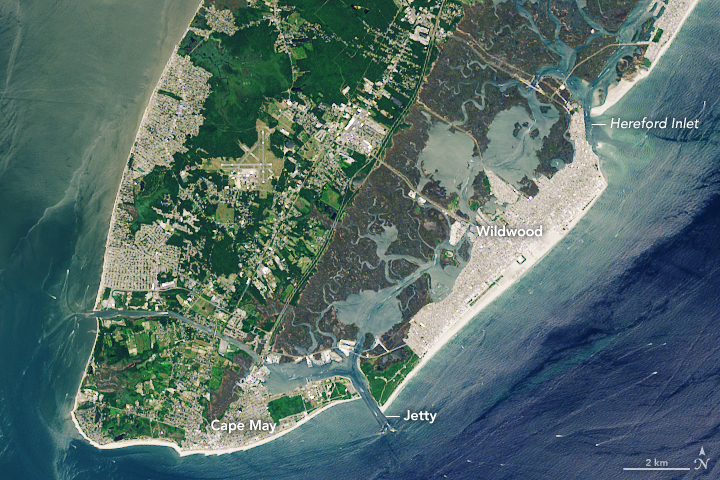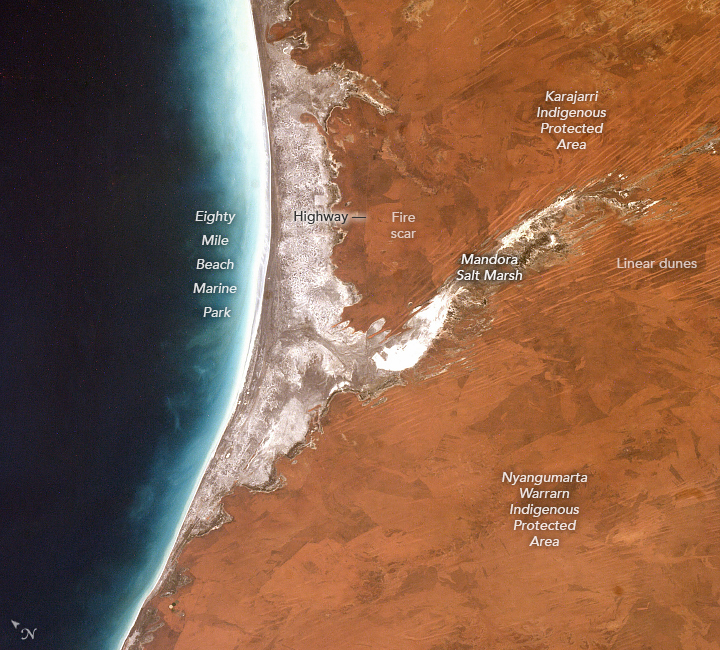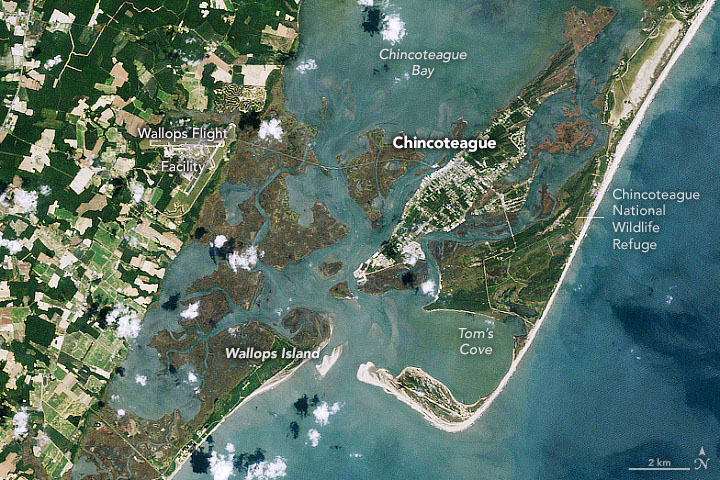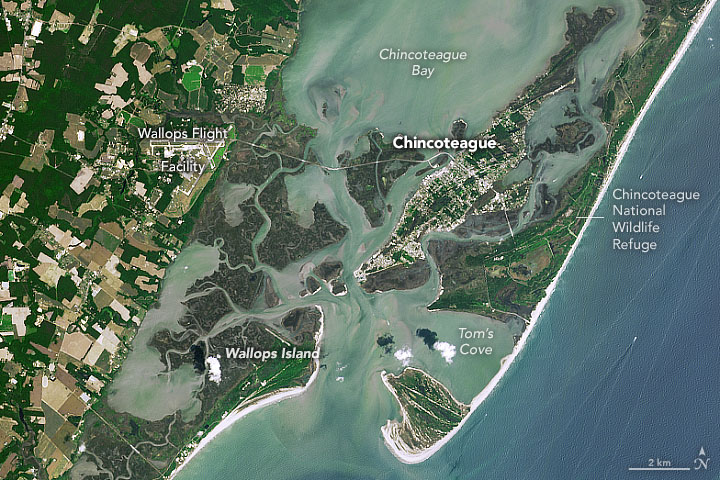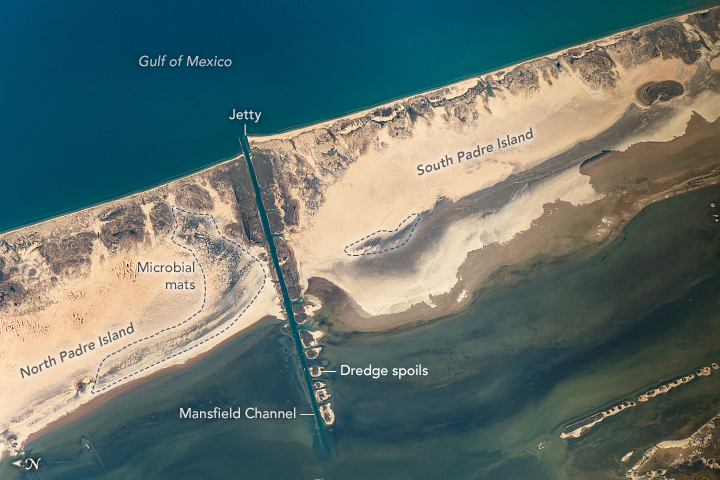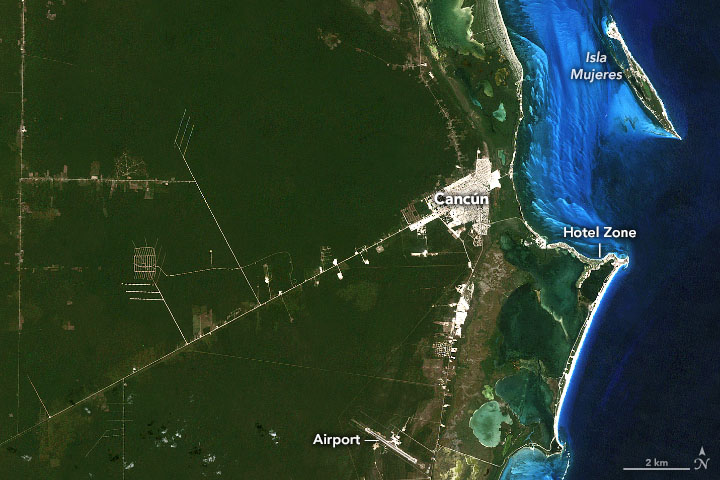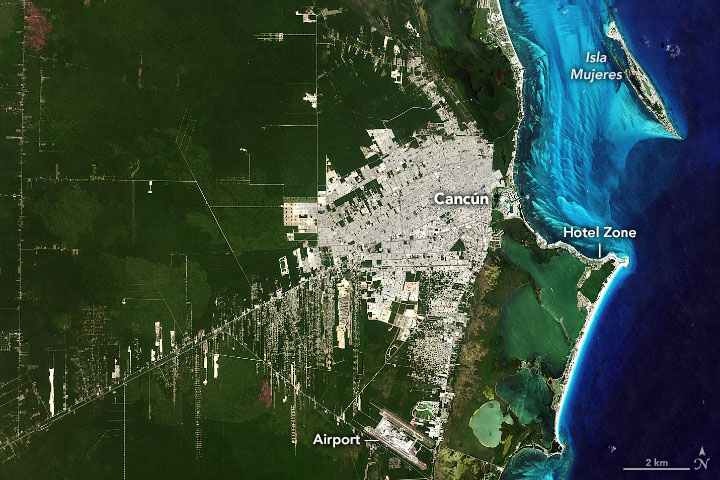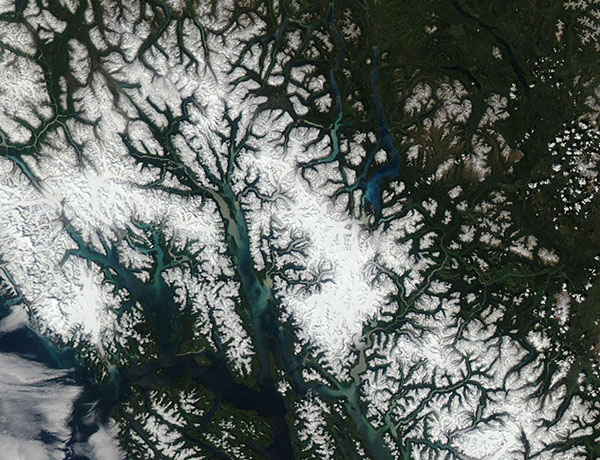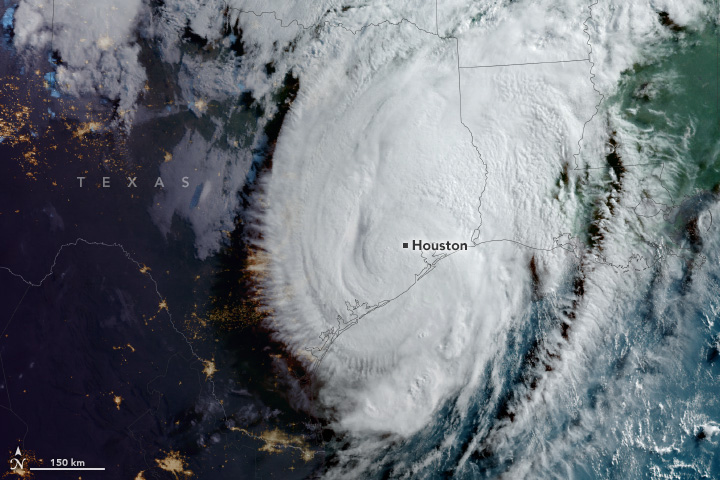Weather history miscellany
Weather history miscellany
https://www.weather.gov/abr/This_Day_in ... ory_Jul_01
2002: San Antonio, Texas recorded 9.52 inches of rain on this day to set a new record for its greatest rainfall for the entire month of July. Click HERE for more information from the NWS Office in San Antonio.
2002: San Antonio, Texas recorded 9.52 inches of rain on this day to set a new record for its greatest rainfall for the entire month of July. Click HERE for more information from the NWS Office in San Antonio.
Re: Weather history miscellany
https://www.weatherforyou.com/weather_history/7-2
1988 - Twenty-six cities in the eastern U.S. reported record low temperatures for the date. The morning low of 47 degrees at Roanoke, VA, broke the July record set the previous day. (The National Weather Summary)
1988 - Twenty-six cities in the eastern U.S. reported record low temperatures for the date. The morning low of 47 degrees at Roanoke, VA, broke the July record set the previous day. (The National Weather Summary)
Re: Weather history miscellany
https://www.weather.gov/abr/This_Day_in ... ory_Jul_03
2000: There is a certain irony about one of the driest places getting the greatest rainfall, and yet that is what happened at usually rain-sparse Vanguard, Saskatchewan on July 3 when a carwash-like downpour flooded the community of 200 people, some 65 km southeast of Swift Current. As much as 375 mm (14.76”) of rain fell in eight hours, the greatest storm for that duration on the Canadian Prairies and one of the most substantial rainfall intensities ever recorded in Canada.
The spectacular thunderstorm produced more cloud-to-ground lightning strikes than that part of southern Saskatchewan would expect in two years. A year's amount of rain left crops in the field drowning and rotting, and roads and rail lines under water. The force of the water crushed cars and farm implements swept away grain bins and soaked large bales. Stranded residents had to be rescued by boat, which rapidly became the carrier of choice on the main street in Vanguard. The flash flood also carried away herds of cattle and drowned dozens of deer and antelope. Some further irony, when millions of liters of contaminated water submerged the water-treatment plant and backed up into homes and businesses, officials had to ship in bottled water from Swift Current.
2000: There is a certain irony about one of the driest places getting the greatest rainfall, and yet that is what happened at usually rain-sparse Vanguard, Saskatchewan on July 3 when a carwash-like downpour flooded the community of 200 people, some 65 km southeast of Swift Current. As much as 375 mm (14.76”) of rain fell in eight hours, the greatest storm for that duration on the Canadian Prairies and one of the most substantial rainfall intensities ever recorded in Canada.
The spectacular thunderstorm produced more cloud-to-ground lightning strikes than that part of southern Saskatchewan would expect in two years. A year's amount of rain left crops in the field drowning and rotting, and roads and rail lines under water. The force of the water crushed cars and farm implements swept away grain bins and soaked large bales. Stranded residents had to be rescued by boat, which rapidly became the carrier of choice on the main street in Vanguard. The flash flood also carried away herds of cattle and drowned dozens of deer and antelope. Some further irony, when millions of liters of contaminated water submerged the water-treatment plant and backed up into homes and businesses, officials had to ship in bottled water from Swift Current.
Re: Weather history miscellany
https://www.weather.gov/abr/This_Day_in ... ory_Jul_04
1776: Thomas Jefferson purchased a thermometer from a local merchant before signing the Declaration of Independence. According to his weather memorandum book, at 1 PM it was cloudy and 76 degrees.
1776: Thomas Jefferson purchased a thermometer from a local merchant before signing the Declaration of Independence. According to his weather memorandum book, at 1 PM it was cloudy and 76 degrees.
Re: Weather history miscellany
https://www.weatherforyou.com/weather_history/7-5
1900 - A spectacular three day fire began when a bolt of lightning struck a refinery in Bayonne NJ. (David Ludlum)
1916 - A hurricane produced 82 mph winds, an 11.6 foot tide, and a barometric pressure of 28.92 inches at Mobile, AL. (David Ludlum)
1970 - The morning low at Death Valley CA was 103 degrees, and the high that afternoon was 120 degrees. (The Weather Channel)
1988 - Afternoon and evening thunderstorms spawned eleven tornadoes in Montana and three in North Dakota. Baseball size hail was reported at Shonkin, MT, and wind gusts to 85 mph were reported south of Fordville, ND. Twenty cities in the north central U.S. reported record high temperatures for the date, including Fargo ND with a reading of 106 degrees. Muskegon, MI, equaled their July record with a high of 95 degrees. (The National Weather Summary) (Storm Data)
1900 - A spectacular three day fire began when a bolt of lightning struck a refinery in Bayonne NJ. (David Ludlum)
1916 - A hurricane produced 82 mph winds, an 11.6 foot tide, and a barometric pressure of 28.92 inches at Mobile, AL. (David Ludlum)
1970 - The morning low at Death Valley CA was 103 degrees, and the high that afternoon was 120 degrees. (The Weather Channel)
1988 - Afternoon and evening thunderstorms spawned eleven tornadoes in Montana and three in North Dakota. Baseball size hail was reported at Shonkin, MT, and wind gusts to 85 mph were reported south of Fordville, ND. Twenty cities in the north central U.S. reported record high temperatures for the date, including Fargo ND with a reading of 106 degrees. Muskegon, MI, equaled their July record with a high of 95 degrees. (The National Weather Summary) (Storm Data)
Re: Weather history miscellany
https://www.weather.gov/abr/This_Day_in ... ory_Jul_06
1928: A seven-inch hailstone weighing 1.5 pounds fell in Potter Nebraska. With a circumference of 17 inches, this appeared to be the largest hailstone in the world at that time.
1986: Thunderstorms during the mid-morning hours, and again during the evening, produced significant flash flooding at Leavenworth, Kansas. The official rainfall total was 10.37 inches, but unofficial totals exceeded twelve inches. At nearby Kansas City, the rainfall total of 5.08 inches was a daily record for July.
1928: A seven-inch hailstone weighing 1.5 pounds fell in Potter Nebraska. With a circumference of 17 inches, this appeared to be the largest hailstone in the world at that time.
1986: Thunderstorms during the mid-morning hours, and again during the evening, produced significant flash flooding at Leavenworth, Kansas. The official rainfall total was 10.37 inches, but unofficial totals exceeded twelve inches. At nearby Kansas City, the rainfall total of 5.08 inches was a daily record for July.
Re: Weather history miscellany
https://www.weather.gov/abr/This_Day_in ... ory_Jul_07
2004: A tornado occurred in the Rockwell Pass area of Sequoia National Park, California. Since the elevation of the tornado’s ground circulation was approximately 3705 m (12,156 ft) MSL, this is the highest-elevation tornado documented in the United States.
2012: In Krymsk, Russia, nearly 11 inches of rain falls within a few hours on July 6th. The resulting flash floods occurred during the early morning hours on the 7th. The flood wave, as high as 23 feet killed at least 172 people. The 10.83 inches is equivalent to three or four months’ worth of precipitation in a typical year.
https://en.wikipedia.org/wiki/Krymsk
2004: A tornado occurred in the Rockwell Pass area of Sequoia National Park, California. Since the elevation of the tornado’s ground circulation was approximately 3705 m (12,156 ft) MSL, this is the highest-elevation tornado documented in the United States.
2012: In Krymsk, Russia, nearly 11 inches of rain falls within a few hours on July 6th. The resulting flash floods occurred during the early morning hours on the 7th. The flood wave, as high as 23 feet killed at least 172 people. The 10.83 inches is equivalent to three or four months’ worth of precipitation in a typical year.
https://en.wikipedia.org/wiki/Krymsk
Re: Weather history miscellany
https://www.weather.gov/abr/This_Day_in ... ory_Jul_08
1680: The first confirmed tornado death in the United States occurred in Cambridge, Massachusetts. The funnel was filled with stones, bushes, and other things. The tornado also unroofed a barn and snapped many large trees.
1680: The first confirmed tornado death in the United States occurred in Cambridge, Massachusetts. The funnel was filled with stones, bushes, and other things. The tornado also unroofed a barn and snapped many large trees.
Re: Weather history miscellany
https://www.weatherforyou.com/weather_history/7-9
1860 - A hot blast of air in the middle of a sweltering summer pushed the mercury up to 115 degrees at Fort Scott and Lawrence, KS. (David Ludlum)
1882 - Ice formed on the streets of Cheyenne, WY, during a rare summer freeze. (David Ludlum)
1936 - The temperature hit an all-time record high of 106 degrees at the Central Park Observatory in New York City, a record which lasted until LaGuardia Airport hit 107 degrees on July 3rd in 1966. (The Weather Channel)
1968 - Columbus, MS received 15.68 inches of rain in 24 hours to establish a record for the state. (The Weather Channel)
1988 - Twenty-three cities in the eastern U.S. reported record high temperatures for the date. Alpena, MI, and Buffalo, NY, suffered through their sixth straight day of record heat. The percentage of total area in the country in the grips of severe to extreme drought reached 43 percent, the fourth highest total of record. The record of 61 percent occurred during the summer of 1934. (The National Weather Summary)
1860 - A hot blast of air in the middle of a sweltering summer pushed the mercury up to 115 degrees at Fort Scott and Lawrence, KS. (David Ludlum)
1882 - Ice formed on the streets of Cheyenne, WY, during a rare summer freeze. (David Ludlum)
1936 - The temperature hit an all-time record high of 106 degrees at the Central Park Observatory in New York City, a record which lasted until LaGuardia Airport hit 107 degrees on July 3rd in 1966. (The Weather Channel)
1968 - Columbus, MS received 15.68 inches of rain in 24 hours to establish a record for the state. (The Weather Channel)
1988 - Twenty-three cities in the eastern U.S. reported record high temperatures for the date. Alpena, MI, and Buffalo, NY, suffered through their sixth straight day of record heat. The percentage of total area in the country in the grips of severe to extreme drought reached 43 percent, the fourth highest total of record. The record of 61 percent occurred during the summer of 1934. (The National Weather Summary)
Re: Weather history miscellany
https://www.weather.gov/abr/This_Day_in ... ory_Jul_10
1926: At the Picatinny Arsenal in New Jersey, lightning struck one of the explosives storage structures during a thunderstorm and started a fire. As a result, several million pounds of explosives detonated over a period of 2–3 days. This explosion not only structural devastation, 187 of 200 buildings destroyed but military and civilian casualties as well. Close to one hundred are injured as explosion spreads havoc within a radius of 15 miles in New Jersey. Otto Dowling was in charge at the time and received a Distinguished Service Cross for his handling of the situation.
1926: At the Picatinny Arsenal in New Jersey, lightning struck one of the explosives storage structures during a thunderstorm and started a fire. As a result, several million pounds of explosives detonated over a period of 2–3 days. This explosion not only structural devastation, 187 of 200 buildings destroyed but military and civilian casualties as well. Close to one hundred are injured as explosion spreads havoc within a radius of 15 miles in New Jersey. Otto Dowling was in charge at the time and received a Distinguished Service Cross for his handling of the situation.
